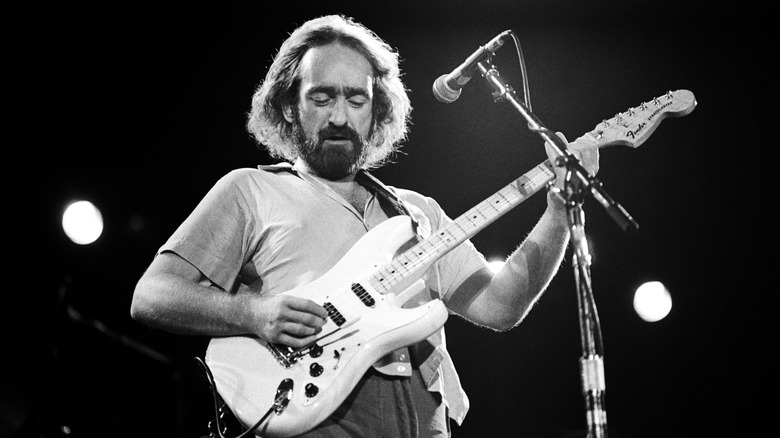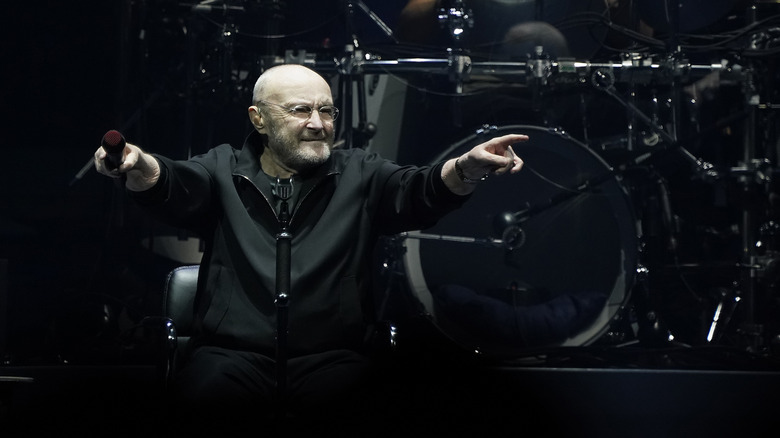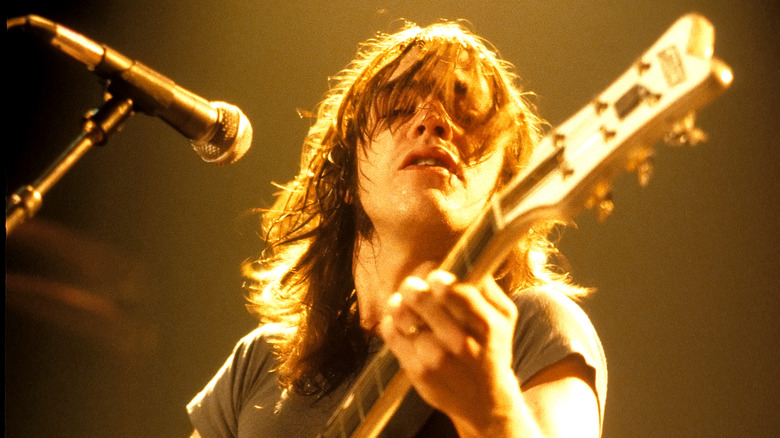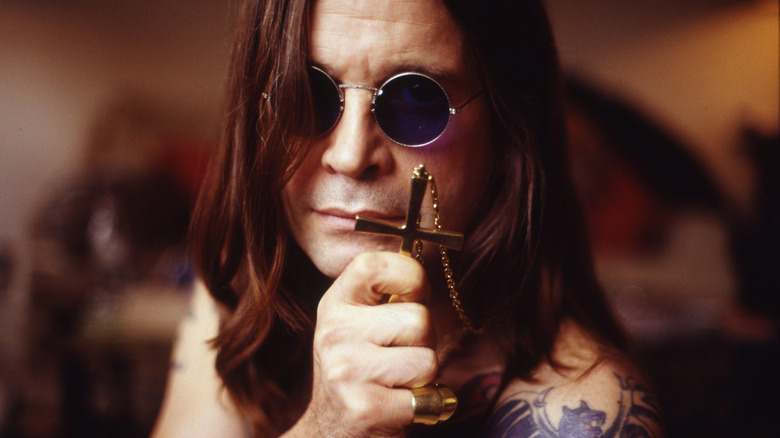Rock Legends Who Ended Their Careers Over Health Problems
English guitarist, vocalist, and songwriter Dave Mason has remained a continued presence on the rock scene since the 1960s, after first making his name as a member of Traffic. In 1969, he left the group to begin a solo career, recording and touring continuously during a career that lasted an impressive six decades. He released three gold and one platinum album, and played on some of the biggest rock albums of all time, including The Rolling Stones' "Beggar's Banquet" and The Jimi Hendrix Experience's "Electric Ladyland."
Like many classic rock legends, Mason made music a career for his entire working life, continuing to play to an age at which many of those in more conventional careers would have long since retired. However, in September 2025, he made the sad announcement that his playing days were no more. The guitarist had been forced to cancel his ongoing "Traffic Jam 2024" tour in September 2024 due to being diagnosed with a serious heart complaint. Unfortunately, he also contracted a serious infection during recovery, and it appeared that Mason's health would not significantly improve to allow him to tour again. Mason admitted he was forced to be "closing the curtain on 60 remarkable years of rock n' roll and marking the end of a significant era in music history" (via Instagram).
But Mason isn't the only rock legend to have to say goodbye to the stage due to health issues. Here are three more artists whose careers have wound down in recent years.
Phil Collins
The British drummer, vocalist, and songwriter Phil Collins was a huge pop sensation during the 1980s, balancing a burgeoning solo career that featured 13 top-10 hit singles in the U.S. with his membership in the band Genesis, for which he both played drums and provided lead vocals after replacing Peter Gabriel as the frontman in 1974. He maintained both musical projects well into the 21st century, continuing to produce albums and make live appearances.
However, that has ceased to be the case in recent years, with Collins' health issues meaning that his career is now all but over. After suffering a major spinal injury in 2007 that resulted in a damaged neck vertebra and nerve damage, Collins was left unable to play the drums. Collins left that part of the performance to his son, Nic, in his final live performances, and he remained seated to deliver his vocals.
Collins made his retirement public in 2022, and in July 2025, rumors spread that the 74-year-old's health had taken a turn for the worse and that he was receiving hospice care. However, Collins' team denied this in a statement given to The Independent.
Malcolm Young
AC/DC rhythm guitarist Malcolm Young may have been overshadowed on stage by his schoolboy-outfit-donning brother and lead guitarist Angus, but his importance to the band and its longevity cannot be overstated. A founding member of the band when it first formed in 1973, he was a driving force throughout the decades, keeping the band steady following the shocking death of lead singer Bon Scott, and ensuring the band never strayed from their mission of playing straight and heavy rock 'n' roll for the masses.
However, Malcolm's health issues began relatively early, with alcohol addiction forcing him to take a break from AC/DC in the late 1980s to go into recovery. He returned to be an active member of the band through the 1990s and 2000s, but stopped performing live in 2010. He had at times been replaced on rhythm guitar by his nephew, Stevie, but it was only in 2014 that his health issues became public. Malcolm was reportedly dealing with early-onset dementia, and his decline hit his family and bandmates hard. As Angus Young recalled in an interview on "60 Minutes Australia," "I think the hardest part was not so much in parting, because that was a kind of end, you know – the relief ... The decline, that's the hard part, because you knew him, and then to see that was gone" (via Ultimate Classic Rock). Malcolm Young died in 2017 at the age of 64.
Ozzy Osbourne
Ozzy Osbourne was one of rock music's most beloved entertainers, whose band Black Sabbath set the template in many respects for the metal genre after it first rose to prominence in the early 1970s. Known for his rich, high-pitched, and ghostly vocals, his performances on classic songs such as "Paranoid" and "Iron Man" are utterly timeless and have been imitated by scores of rock singers ever since.
Osbourne was also known for his wildman persona, with a hedonistic off-stage lifestyle that saw him kicked out of the band in 1979, following years of heavy substance misuse. Nevertheless, he enjoyed a solo career throughout the 1980s and early 1990s, only returning to Black Sabbath in 1997.
The band continued to perform sporadically thereafter — while Osbourne became a reality TV star thanks to the hit show "The Osbournes" — and although Osbourne was recording successful studio albums into the 2020s, his declining health stymied attempts to tour. Osbourne had long dealt with Parkinson's disease and respiratory infections, as well as a major neck injury after a fall, but he did manage one last show before retiring. On July 5, 2025, Osbourne and Black Sabbath headlined the "Back to the Beginning" festival, supported by the biggest names in rock and metal for a one-day charity event. It was well received by fans and the press and considered a heartwarming send-off for the icon. Osbourne died just weeks later on July 22, at the age of 76.
If you or anyone you know needs help with addiction issues, help is available. Visit the Substance Abuse and Mental Health Services Administration website or contact SAMHSA's National Helpline at 1-800-662-HELP (4357).



